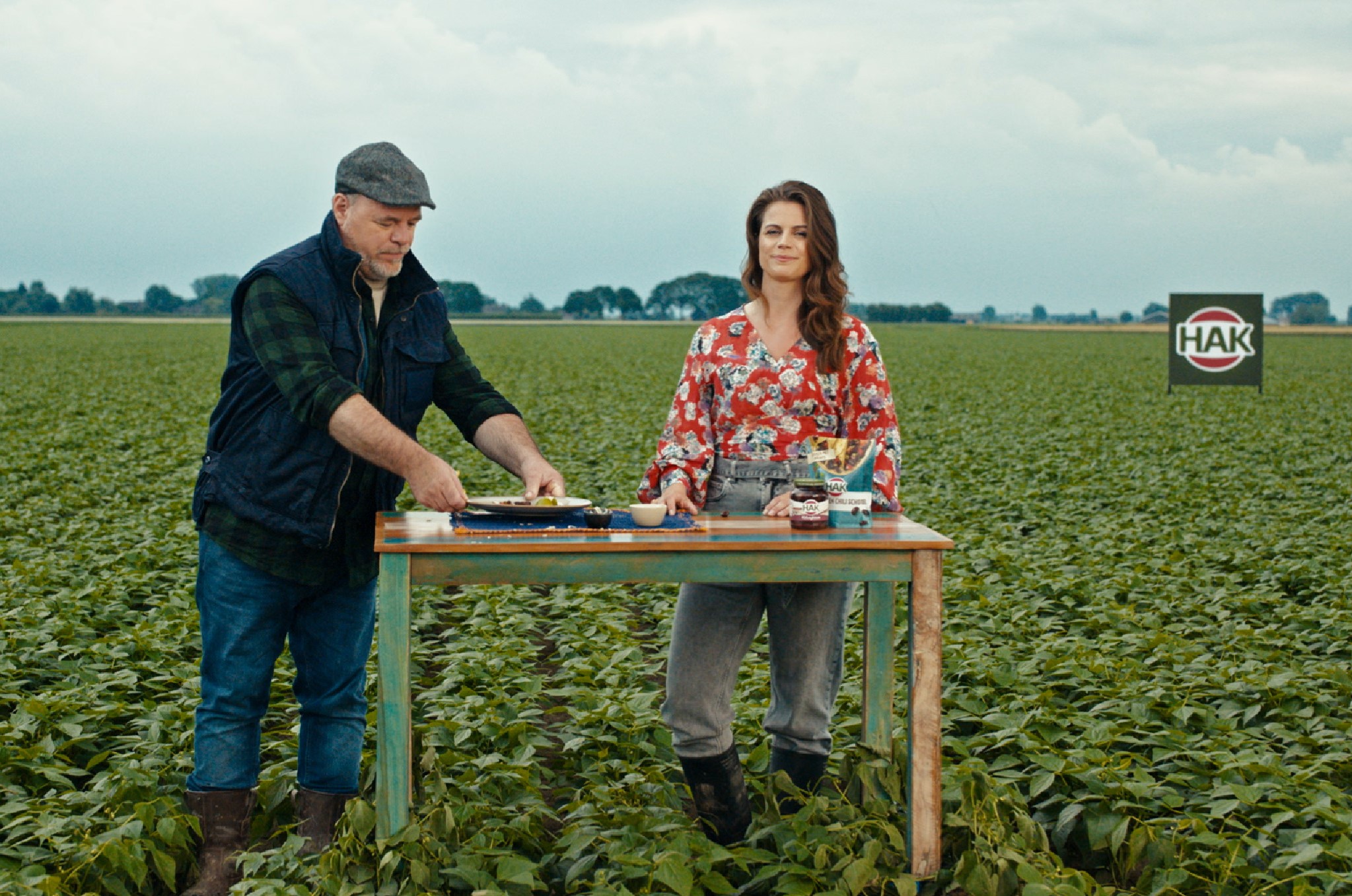
HAK encourages the selection of locally grown pulses
Today, HAK launched its new campaign to increase consumer awareness of the sustainable benefits of locally grown pulses. Zealand native Kidney Bean stars in the new campaign alongside actress Elise Schaap. From now on, HAK will source all of its large kidney beans in North America, normally from the Netherlands, so they don’t have to travel long distances. It saves CO2 emissions and fits seamlessly National Protein Strategy (NES).
The new campaign informs people about the origins of pulses and the benefits of local cultivation. The Zeeland kidney bean is central to this, as it is a good example of a legume that was once mainly grown in North America, but HAK now comes entirely from the Netherlands.
HAK’s director of marketing and innovation, Nicole Freed, says: “We launched this campaign to raise consumer awareness of the origins of legumes. With food available all over the world, consumers don’t always know where our food really comes from. In the Ellis Shop new campaign, our kidney beans are no longer a long way from North America. No need to travel, now grown locally. As a result, they feel ‘better in their own skin’ and it’s better for the planet.
Local cultivation saves thousands of kilometers
HAK grows at least 85% of all its vegetables and legumes within a 125 kilometer radius of the factory in Giessen, which now also applies to kidney beans. Kidney beans are grown in Zeeland and South Holland. Local cultivation of this ‘exotic’ pulse saves transport kilometers and therefore CO2 emissions. A kidney bean from North America travels an average of 8,000 kilometers longer than a bean grown in the Netherlands, including a larger area in a container ship, resulting in a higher CO2 footprint than a bean grown in the Netherlands with the same cultivation method.
A logical next step
With this campaign, HAK is taking the next step in its contribution to the national protein strategy to increase the supply of plant-based, highly sustainable and fresh proteins in the Netherlands. Last year, the organization co-signed the ‘Bean Deal’, a green agreement between the Ministry of Agriculture, Nature and Food Quality (LNV) and 56 partners. This Green Deal should ensure that the Netherlands grows more protein-rich crops to achieve greater self-sufficiency in fresh and vegetable proteins.
Growing locally has added value for nature in the Netherlands, as protein-rich crops absorb nutrients and nitrogen, contributing to healthier soils and greater biodiversity. Additionally, by growing in close proximity, HAK can easily collaborate with its farmers to make cultivation more sustainable. For example, HAK’s locally grown kidney beans are certified with the independent sustainability label ‘On the Way to Planet Proof’.
More ‘exotic’ crops from the Netherlands
The success of the Dutch kidney bean is a good example of how a national protein strategy can work. HAK currently grows large quantities of kidney beans in the Netherlands. In the coming period, vegetable and pulse producers will explore which other exotic crops can be grown in the Netherlands. HAK is experimenting with black beans, small white beans, pinto and borlotti beans.

“Coffee fanatic. Friendly zombie aficionado. Devoted pop culture practitioner. Evil travel advocate. Typical organizer.”
